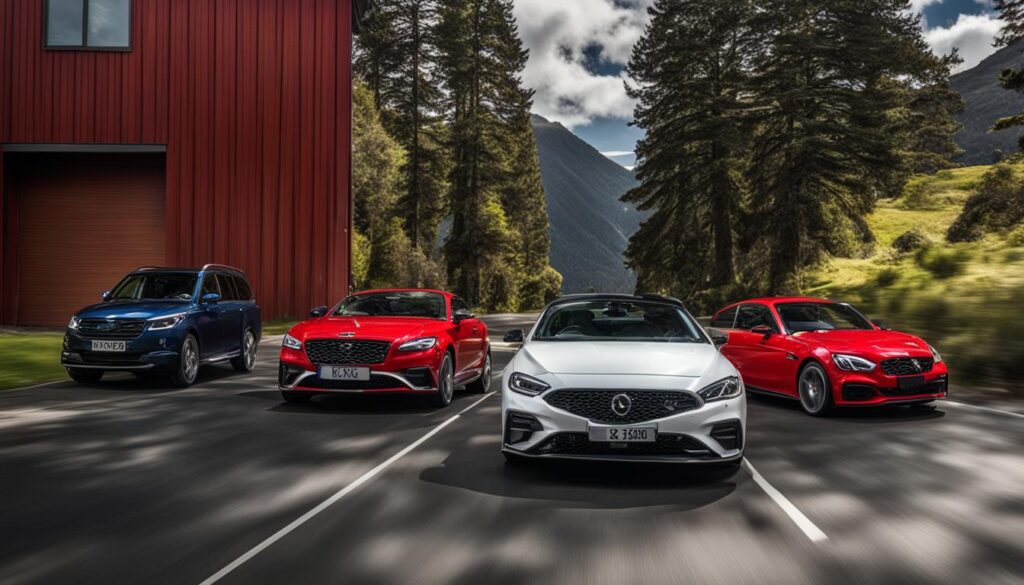Are you in the market for a new car in New Zealand but unsure if you should buy or lease? It can be a tough decision, and there are several factors to consider before making a final choice. In this guide, I’ll help you weigh the pros and cons of buying versus leasing a car in New Zealand and provide you with the information you need to make the best decision for your situation.
Key Takeaways:
- Before making a decision, consider the upfront costs, monthly payments, and long-term ownership of both options.
- Buying a car in New Zealand gives you full ownership and the ability to modify and sell the vehicle, but comes with higher upfront costs and depreciation.
- Leasing a car in New Zealand typically has lower monthly payments, but you do not own the vehicle and may face mileage restrictions and fees for excessive wear and tear.
- Special financing and environmental considerations may also play a role in your decision-making process.
- Ultimately, the decision to buy or lease a car in New Zealand will depend on your personal preferences, budget, and driving needs.
Understanding Buying a Car in New Zealand
As a New Zealander, buying a car can be both exciting and daunting. It’s a significant investment, and there are many financing options available to consider. In this section, we’ll delve into the details of buying a car in New Zealand, including financing options and key factors to consider when making a purchase.
Financing Options
When it comes to financing a car purchase in New Zealand, there are a few different options to consider:
- Dealer financing – this is when you borrow money from the dealership to purchase the car. It’s convenient, but the interest rates can be higher than other financing options.
- Personal loans – this is when you borrow money from a bank or other financial institution. The interest rates may be lower than dealer financing, but you’ll need good credit to qualify.
- Hire purchase agreements – this is when you make installment payments to a lender for a set number of years. At the end of the term, the car is yours.
It’s essential to assess your financial situation and determine which financing option is best for you. Consider factors such as interest rates, monthly payments, and repayment terms.
Key Factors to Consider
When buying a car in New Zealand, there are several factors to consider, including:
- Your budget – determine how much you can afford to spend, including ongoing costs such as insurance and maintenance.
- Your driving needs – consider how you will use the car (e.g. commuting, family transport, recreational activities) and what features and capabilities are necessary.
- The car’s history and condition – do your research and inspect the car thoroughly to ensure it’s in good condition and doesn’t have any hidden issues.
- The car’s fuel efficiency and emissions – if you’re concerned about your environmental impact, consider purchasing a fuel-efficient or electric car.
By taking the time to assess your needs and evaluate your options, you can make an informed decision when buying a car in New Zealand.
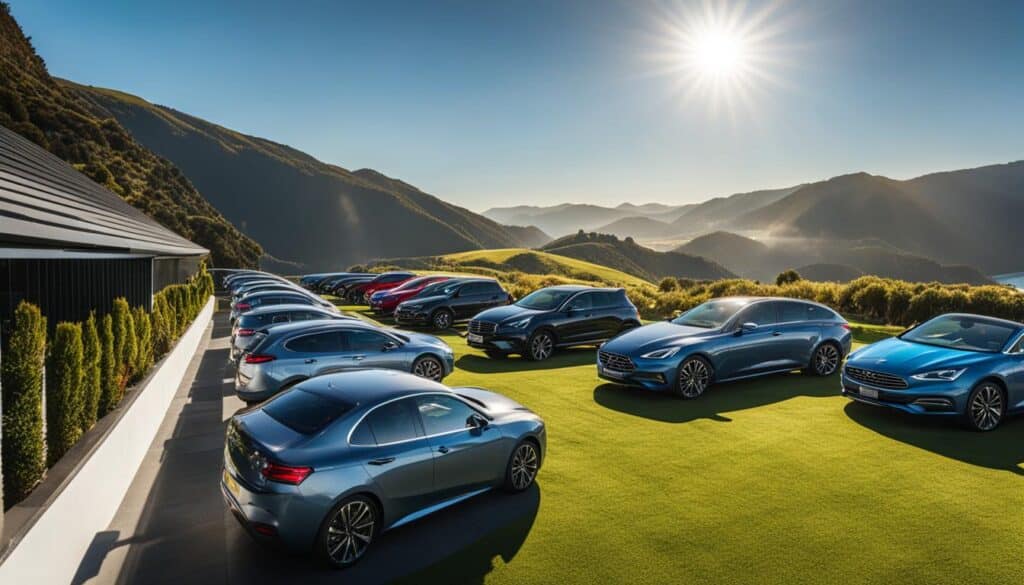
Pros and Cons of Buying a Car
When it comes to car ownership in New Zealand, buying a car outright is a popular option. However, it’s important to weigh up the pros and cons before making a decision.
Pros of Buying a Car
- Ownership: When you buy a car, you own it outright and have the freedom to do with it as you please. This includes customizing it to your liking and driving it as much as you want without worrying about extra charges.
- No Mileage Restrictions: Unlike with a lease agreement, there are no mileage restrictions when you own a car. This means you can drive as much or as little as you like without incurring any additional costs.
- Potential for Resale: If you take good care of your car and keep it in good condition, you may be able to resell it for a reasonable price in the future. This can help offset the cost of your initial investment.
Cons of Buying a Car
- Upfront Costs: Buying a car outright can be expensive, especially if you’re purchasing a new vehicle. You’ll need to have the funds ready to cover the purchase price or arrange financing, which may come with interest and fees.
- Depreciation: Cars depreciate in value over time, which means they lose value quickly after you purchase them. While this won’t impact your ability to drive the car, it does mean you may not be able to sell it for as much as you initially paid.
- Long-Term Ownership: While owning a car outright can be liberating, it also means you’re responsible for all maintenance and repairs. This can be costly, especially if the car requires major repairs or replacements.
Ultimately, the decision to buy a car in New Zealand is a personal one that will depend on your circumstances and preferences. It’s important to carefully consider the pros and cons before making a decision.
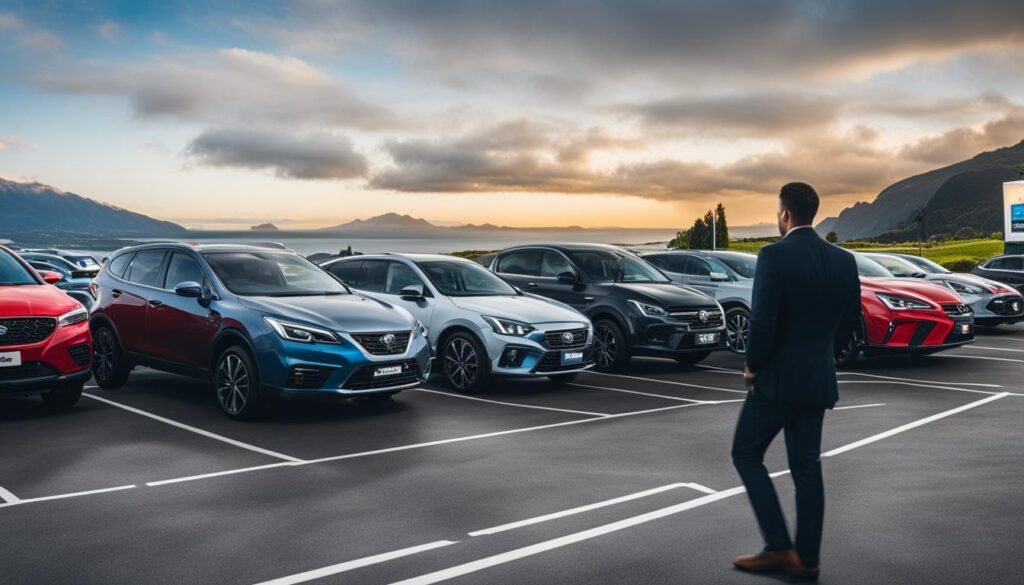
Leasing a Car in New Zealand: A Comprehensive Guide
If you’re considering leasing a car in New Zealand, there are several things you need to know before making a decision. Leasing a car can be an attractive option for those who want a new vehicle every few years, lower monthly payments, and minimal upfront costs. But it’s important to understand the leasing process and various lease options available.
How Leasing Works
When you lease a car, you’re essentially renting it for a set period of time. You’ll make monthly payments for the use of the car, but you won’t own it. At the end of the lease term, you’ll return the car to the dealership or leasing company.
Leasing contracts typically last for 2-5 years, and you’ll be required to keep the car within a certain mileage limit. If you exceed the mileage limit, you’ll be charged a fee for each additional mile over the limit. You’ll also be responsible for any wear and tear on the car, so it’s important to take good care of it during the lease period.
Types of Lease Agreements
| Lease Type | Description |
|---|---|
| Closed-End Lease | At the end of the lease term, you’ll return the car and walk away. You won’t be responsible for any additional fees or costs, unless you’ve exceeded the mileage limit or caused excessive wear and tear on the car. |
| Open-End Lease | At the end of the lease term, you’ll be responsible for paying any additional fees or costs associated with the car. This type of lease is riskier for the lessee, as you may end up owing more than the car is worth at the end of the lease term. |
Most lease agreements in New Zealand are closed-end leases, but it’s important to understand the differences before signing any contracts.
Pros of Leasing a Car
- Lower monthly payments: Monthly payments for a lease are typically lower than payments for purchasing a car outright or financing it through a loan.
- New car every few years: Leasing allows you to drive a new car every few years, without the hassle of reselling or trading in your old car.
- Minimal upfront costs: Leasing a car typically requires minimal upfront costs, as there’s no need for a large down payment.
- No depreciation worries: Since you don’t own the car, you won’t have to worry about the depreciation of its value.
Cons of Leasing a Car
- Limited mileage: Most lease agreements come with a mileage limit, and you’ll be charged for any additional miles over the limit.
- No ownership of the car: You won’t own the car at the end of the lease term, and you’ll need to return it to the dealership or leasing company.
- Penalties for excessive wear and tear: You’ll be responsible for any excessive wear and tear on the car at the end of the lease term.
- No customization: Since you don’t own the car, you won’t be able to make any customizations or modifications to it.
It’s important to weigh the pros and cons carefully before deciding whether leasing a car is the right choice for you.
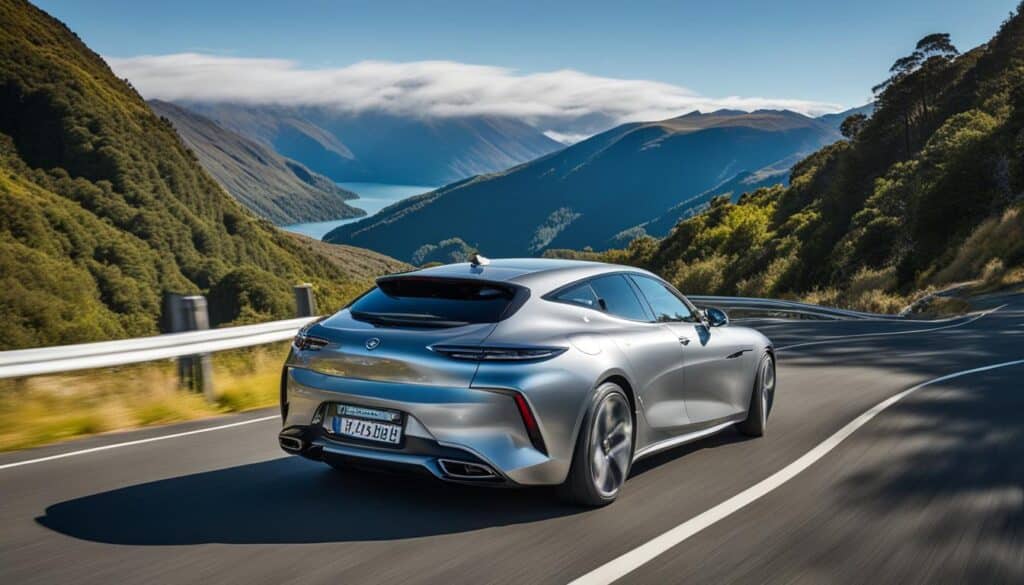
Leasing a car can be an attractive option for those who want a new vehicle every few years, lower monthly payments, and minimal upfront costs. But it’s important to understand the leasing process and various lease options available.
Pros and Cons of Leasing a Car
When considering leasing a car in New Zealand, there are several advantages and disadvantages to keep in mind.
Pros of Leasing a Car
- Lower Monthly Payments: Leasing a car generally results in lower monthly payments compared to buying a car outright.
- Newer Models: Leasing a car allows you to drive a newer model car with the latest features and technology.
- Minimal Upfront Costs: Leasing a car often requires little to no down payment, making it a more affordable option for those on a tight budget.
- Warranty Coverage: Most leased cars come with a manufacturer’s warranty which may cover maintenance and repairs for the length of the lease.
Cons of Leasing a Car
- Limited Mileage: Most lease agreements come with a yearly mileage limit, which can result in additional fees if exceeded.
- No Ownership: When leasing a car, you do not own the vehicle and must return it at the end of the lease term.
- Additional Fees: Leasing a car may come with additional fees such as acquisition fees, disposition fees, and mileage fees.
- Depreciation: While leasing a car may result in lower monthly payments, you will not build any equity in the vehicle, and it will have no resale value at the end of the lease term.
Ultimately, the decision to lease a car in New Zealand depends on your personal circumstances and financial situation. Consider factors such as your budget, driving needs, and long-term goals before making a decision. It’s also important to carefully read and understand the terms and conditions of any lease agreement before signing on the dotted line.
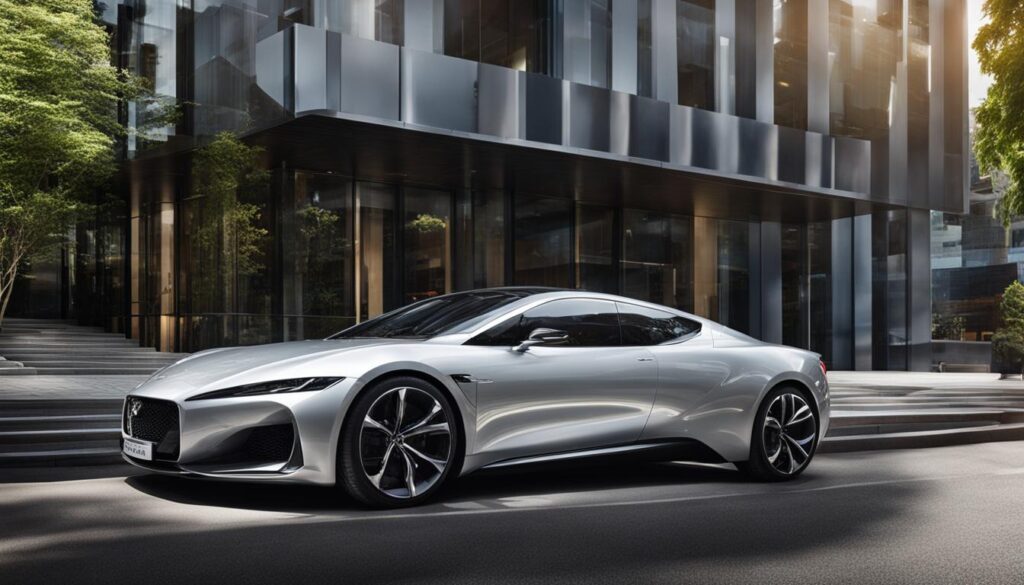
Cost Comparison: Buying Vs Leasing a Car in New Zealand
When deciding between buying and leasing a car in New Zealand, one of the most important factors to consider is the cost. Both options have their own set of expenses, and it’s important to weigh them against each other to determine which is the best fit for your budget and lifestyle.
Let’s take a closer look at the costs associated with each option:
| Buying a Car | Leasing a Car | |
|---|---|---|
| Upfront Costs | Higher upfront costs, including a down payment and taxes | Lower upfront costs, with little to no down payment required |
| Monthly Payments | Higher monthly payments due to the full cost of the car being financed | Lower monthly payments due to only financing the depreciation of the car during the lease term |
| Maintenance | Responsible for all maintenance and repair costs | Basic maintenance covered by the lease, but additional costs for excessive wear and tear or damage |
| Ownership | Full ownership of the car, allowing the option to sell or trade in at any time | No ownership of the car, requiring the return of the leased vehicle at the end of the term |
| Depreciation | Car depreciates in value over time, leading to a lower resale or trade-in value | No depreciation costs, as the car is returned to the dealer at the end of the lease term |
It’s important to note that insurance costs for both buying and leasing a car will vary based on your individual circumstances and the type of car you choose. Additionally, the longer you keep a car that you’ve purchased, the lower your overall cost of ownership will be, as you’ll have more time to drive the car after paying it off.
Ultimately, whether buying or leasing a car in New Zealand is more cost-effective depends on your specific needs and priorities. If you plan on keeping a car for many years and want the flexibility of ownership, buying may be the better choice. However, if you prefer lower monthly payments and the ability to switch to a new car every few years, leasing could be the way to go.
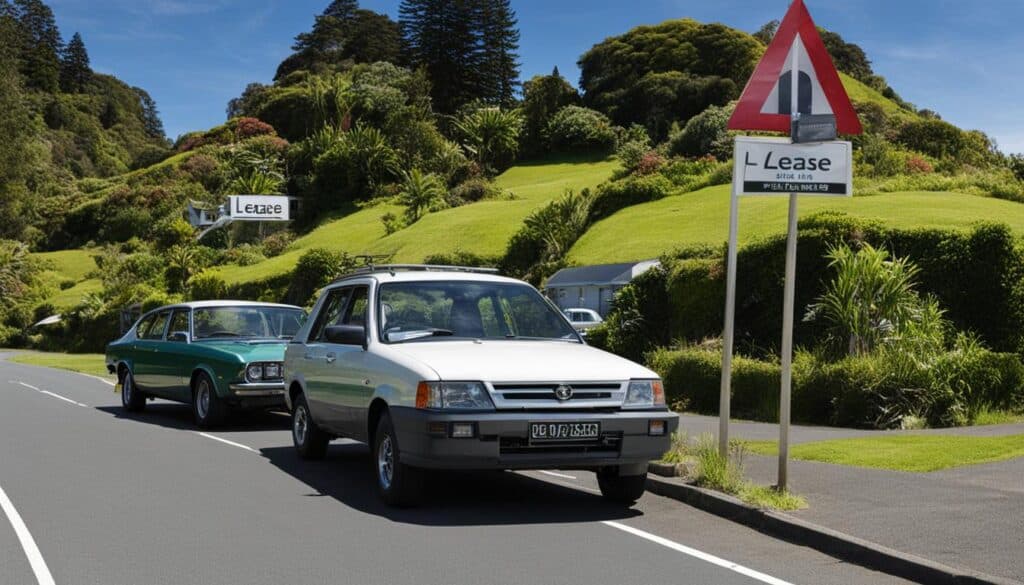
Flexibility: Buying Vs Leasing a Car in New Zealand
When it comes to flexibility, there are clear differences between buying and leasing a car in New Zealand.
With a car lease, the terms and conditions of the contract are usually fixed. This means that any modifications to the vehicle, such as adding extra features or changing the color, may require additional fees or approval from the leasing company. Additionally, early termination of the lease contract can result in significant penalties.
On the other hand, buying a car outright provides more flexibility and control over the vehicle. You are free to modify or customize the car to your liking, and you have the option to sell it whenever you choose.
However, it’s important to note that buying a car outright also means taking on the responsibility of maintenance and repairs. This can be costly, especially if the car requires major repairs or replacement parts.
Ultimately, the choice between buying and leasing a car comes down to personal preference and lifestyle. If you value customization and ownership, buying a car outright may be the best option for you. However, if you prefer lower monthly payments and the ability to upgrade to a newer model every few years, leasing may be the way to go.
Vehicle Modifications
As previously mentioned, modifications to a leased vehicle may require additional fees or approval from the leasing company. This can limit the amount of customization you can do on the car.
When buying a car, you have more freedom to modify or customize the vehicle to your liking. This can include anything from upgrading the sound system to adding a spoiler.
Contract Terms
Lease contracts typically have fixed terms and conditions, which means that you may be locked into the contract for a set period of time. Early termination of the lease can result in significant penalties or fees.
When buying a car, you have the freedom to sell the vehicle whenever you choose. However, it’s important to note that the value of the car may depreciate over time, which can impact the resale value.
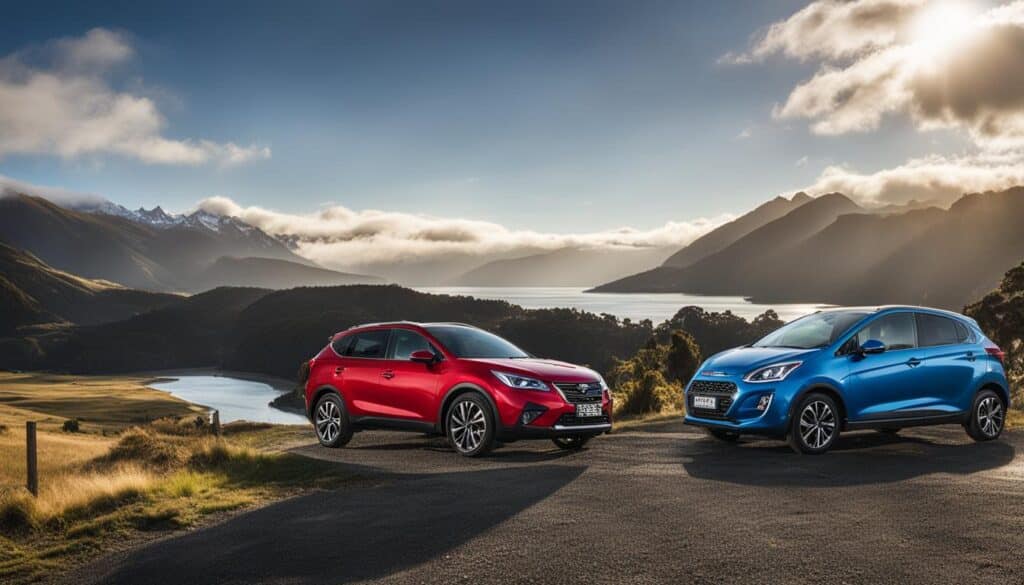
Considerations for New Zealand Drivers
When it comes to buying or leasing a car in New Zealand, there are some specific considerations that drivers should be aware of. Here are some key points to keep in mind:
- Insurance Requirements: Drivers in New Zealand are required by law to have third-party insurance coverage at a minimum. However, it’s recommended that drivers opt for comprehensive insurance to protect themselves in case of accidents or theft. When leasing a car, the leasing company may require specific insurance coverage.
- Road Rules: New Zealand has unique road rules that may differ from other countries. It’s important for drivers to familiarize themselves with these rules before hitting the road. Additionally, when leasing a car, drivers should be aware of any restrictions or conditions outlined in their lease agreement.
- Popular Vehicle Choices: New Zealand drivers tend to favor certain types of vehicles, such as SUVs and utes (pickup trucks). When considering buying or leasing a car in New Zealand, it’s worth noting what types of vehicles are popular and why.
Table: Most Popular Car Models in New Zealand (2021)
| Rank | Make and Model | Number of Vehicles Sold |
|---|---|---|
| 1 | Toyota Hilux | 6,523 |
| 2 | Ford Ranger | 5,491 |
| 3 | Toyota RAV4 | 3,393 |
| 4 | Mitsubishi Triton | 3,178 |
| 5 | Kia Sportage | 3,080 |
As you can see, utes and SUVs dominate the list of the most popular car models in New Zealand. This is partly due to the country’s rugged terrain and outdoor lifestyle. When deciding whether to buy or lease a car in New Zealand, it’s worth considering what types of vehicles are most practical for your lifestyle and needs.
Special Financing Options for New Zealanders
When it comes to buying a car in New Zealand, there are several financing options available to help make your purchase more affordable. In this section, I’ll explore some of the special financing options that are available to New Zealanders.
Dealer Financing
Many car dealerships in New Zealand offer financing options that can make buying a car more affordable. With dealer financing, you can apply for a loan directly through the dealership. This can be a convenient option, as you can often complete the entire car-buying process in one place.
When considering dealer financing, be sure to read the terms and conditions carefully. Some dealerships may offer low-interest rates but charge additional fees or penalties for early repayment.
Personal Loans
Another option for financing a car in New Zealand is a personal loan. You can apply for a personal loan through a bank or other financial institution. Personal loans can offer more flexibility than dealer financing, as you can choose the loan amount and repayment term that works best for you.
However, it’s important to keep in mind that personal loans may come with higher interest rates than other financing options. Be sure to shop around and compare interest rates and fees before committing to a loan.
Hire Purchase Agreements
A hire purchase agreement is a type of financing option where you make regular payments to use a car, with the option to purchase the car at the end of the agreement term. This can be a good option for those who want to spread out the cost of a car over a longer period of time.
With a hire purchase agreement, you may be required to make a down payment or a balloon payment at the end of the term. Be sure to read the terms and conditions carefully to understand the full cost of the agreement.
Overall, there are several financing options available to New Zealanders who are looking to buy a car. Be sure to compare your options and choose the one that works best for your needs and budget.
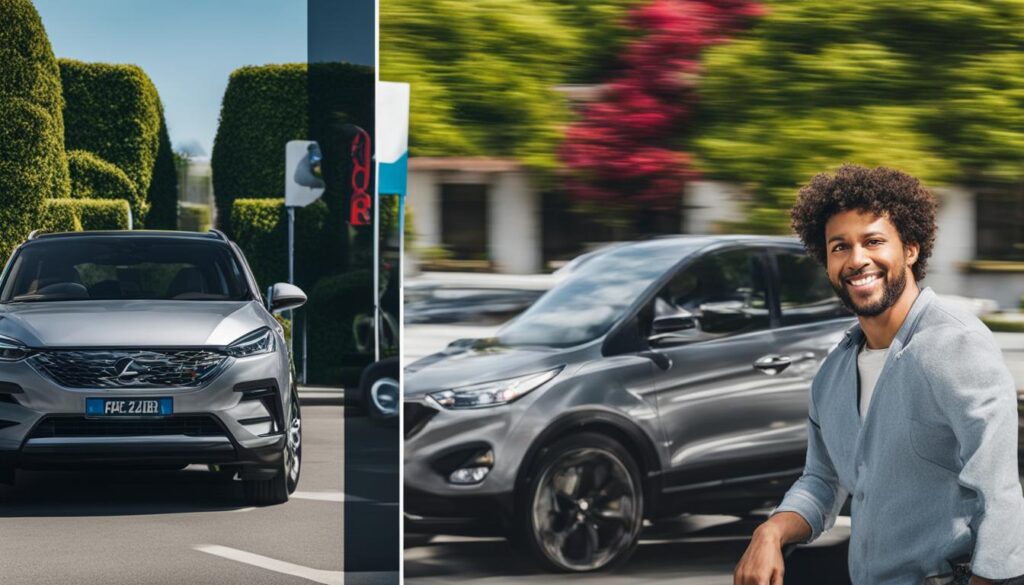
Environmental Impact: Buying Vs Leasing a Car in New Zealand
If you’re concerned about the environmental impact of your vehicle, it’s important to consider the pros and cons of buying versus leasing a car in New Zealand. While both options have their advantages and disadvantages, one may be more environmentally friendly than the other.
When it comes to buying a car in New Zealand, you have the option of purchasing a new or used vehicle. New vehicles are generally more fuel-efficient, which can help reduce emissions and lower your carbon footprint. However, the production of new cars requires a significant amount of energy and resources, which can also have a negative impact on the environment.
Used cars, on the other hand, require less energy to produce, but may not be as fuel-efficient as newer models. Additionally, older cars may emit more pollutants, which can harm the environment and contribute to climate change.
Leasing a car in New Zealand can also have an impact on the environment. While some lease agreements may require lower emissions or fuel-efficient vehicles, others may not have any restrictions. Additionally, the production and disposal of leased vehicles can also have an impact on the environment.
| Environmental Impact | Buying | Leasing |
|---|---|---|
| Fuel Efficiency | New cars are generally more fuel-efficient, but may require more resources to produce. | Lease agreements may require fuel-efficient vehicles, but not always. |
| Production | New cars require significant energy and resources to produce. | Leased vehicles are produced and disposed of more frequently than purchased vehicles. |
| Pollutants | Older cars may emit more pollutants, which can harm the environment and contribute to climate change. | Leased vehicles may not have any restrictions on emissions or pollutants. |
Ultimately, the environmental impact of your vehicle will depend on a variety of factors, including its fuel efficiency, age, and maintenance. It’s important to consider all of these factors when deciding whether to buy or lease a car in New Zealand.
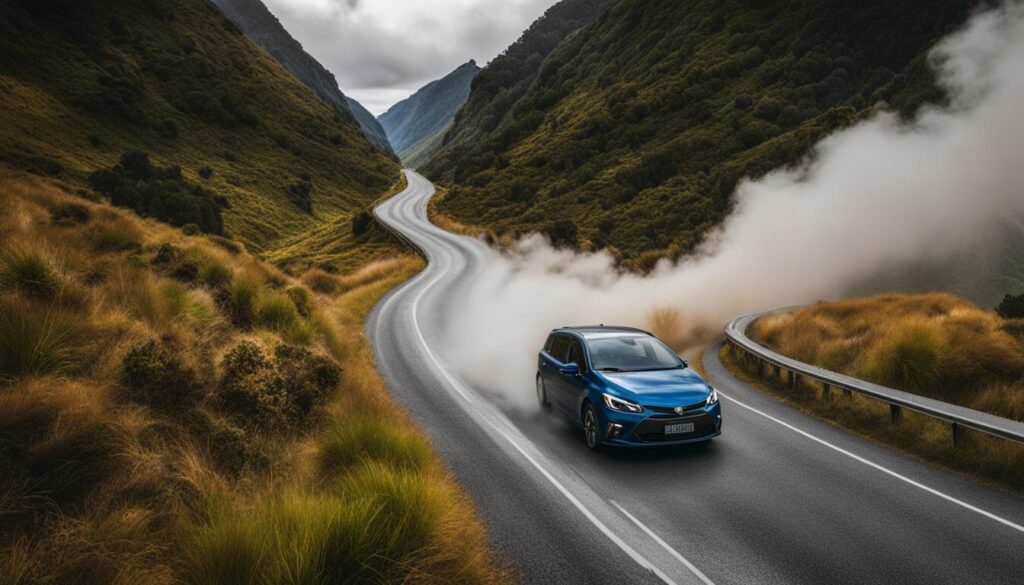
Maintenance and Repairs: Buying Vs Leasing a Car in New Zealand
When it comes to maintenance and repairs, there are key differences between buying and leasing a car in New Zealand.
If you buy a car, you are responsible for all the maintenance and repairs. This can be costly, especially if your car needs major repairs, or if parts need to be replaced.
On the other hand, if you lease a car, the dealership typically covers maintenance and repairs that are due to normal wear and tear. It’s important to note, however, that you may still be responsible for certain costs, such as tire replacements or excessive damage beyond what is considered normal wear and tear.
Another factor to consider is warranty coverage. If you own a car, you may have to purchase an extended warranty for coverage beyond the manufacturer’s warranty period. With a leased car, the manufacturer’s warranty usually covers the entire lease term.
Overall, the maintenance and repair costs for a leased car can potentially be lower than for a bought car, but this is largely dependent on the specific lease terms and the type of car being leased.
Maintenance and Repairs: A Cost Comparison
To give you an idea of the potential cost differences between buying and leasing, here’s a hypothetical cost comparison for a mid-sized sedan over a five-year period:
| Buying | Leasing | |
|---|---|---|
| Monthly Payment | $400 (financed) | $300 (lease payment) |
| Down Payment | $5,000 | $0 |
| Maintenance & Repairs | $3,000 | $1,500 (included in lease) |
| Total Cost Over 5 Years | $29,000 | $18,000 |
As you can see, the total cost of owning a car over a five-year period is higher than the cost of leasing a car. However, it’s important to note that these costs can vary greatly depending on the specific car and lease or financing terms.
Ultimately, when it comes to maintenance and repairs, the decision to buy or lease a car in New Zealand will depend on your personal circumstances and preferences. If you value lower maintenance costs and the peace of mind of a manufacturer’s warranty, leasing may be the better option. But if you prefer to own your car outright and have more control over maintenance and repairs, buying may be the way to go.
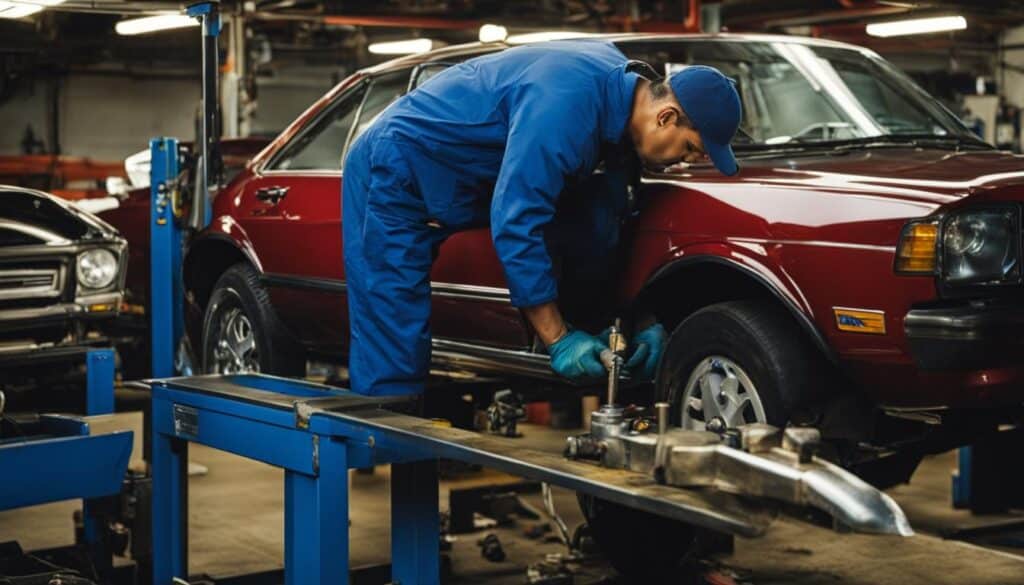
Conclusion
After weighing the pros and cons of buying versus leasing a car in New Zealand, it’s clear that there isn’t a one-size-fits-all option. Your personal circumstances and preferences will play a key role in determining which route is best for you.
If you’re someone who values long-term ownership and doesn’t mind the higher upfront costs, buying a car outright may be the better choice for you. On the other hand, if you prefer lower monthly payments and the ability to regularly upgrade your vehicle, leasing may be the way to go.
When considering the costs associated with both options, it’s important to take into account factors such as monthly payments, insurance, maintenance, and depreciation. While buying may ultimately be cheaper in the long run, leasing may provide more immediate financial relief.
Flexibility is another factor to consider. If you’re someone who likes to modify their vehicle or wants the option to terminate the agreement early, buying may be the better option. However, if you prefer the convenience of returning the vehicle at the end of the lease term, leasing could be right for you.
Final Thoughts
Ultimately, the decision to buy or lease a car in New Zealand will depend on your individual circumstances and preferences. It’s important to do your research and consider all factors before making a decision.
Remember to take into account any specific considerations for New Zealand drivers, such as insurance requirements and popular vehicle choices. And don’t forget to explore any special financing options that may be available to you.
Whether you decide to buy or lease a car in New Zealand, always remember to prioritize your own financial stability, convenience, and comfort. By doing so, you’ll be able to make an informed decision that best suits your needs.
FAQ
What are the advantages and disadvantages of buying a car in New Zealand?
Buying a car in New Zealand gives you full ownership and the ability to customize and modify the vehicle. However, it also comes with upfront costs, depreciation, and long-term maintenance responsibilities.
What are the advantages and disadvantages of leasing a car in New Zealand?
Leasing a car in New Zealand provides lower monthly payments and the opportunity to drive a new vehicle every few years. However, you have limited mileage allowances and do not own the car at the end of the lease.
Which option is more cost-effective, buying or leasing a car in New Zealand?
The cost-effectiveness of buying versus leasing a car in New Zealand depends on factors such as monthly payments, maintenance expenses, insurance costs, and depreciation. It is important to consider these factors and compare the overall costs before making a decision.
Can I modify a leased car in New Zealand?
Generally, modifications to a leased car in New Zealand are not allowed without prior permission from the leasing company. It is important to review the terms and conditions of the lease agreement regarding modifications before making any changes.
What are the insurance requirements for buying or leasing a car in New Zealand?
Both buying and leasing a car in New Zealand require insurance coverage. The type and level of coverage may vary, but it is important to have comprehensive insurance that protects both the vehicle and yourself in case of any accidents or damages.
Are there any special financing options available for buying a car in New Zealand?
Yes, there are various financing options available for buying a car in New Zealand. These options include dealer financing, personal loans, and hire purchase agreements. It is advisable to compare the terms and interest rates of these options before making a decision.
How does car depreciation affect the decision between buying and leasing in New Zealand?
Car depreciation is a significant factor to consider when deciding between buying and leasing a car in New Zealand. When you buy a car, you will experience the full impact of depreciation as the car’s value decreases over time. Leasing, on the other hand, allows you to avoid the effects of depreciation since you do not own the vehicle.
What are the environmental impacts of buying versus leasing a car in New Zealand?
Buying a car in New Zealand may allow you to choose a more fuel-efficient and environmentally friendly vehicle. Leasing, on the other hand, allows you to regularly upgrade to newer models with improved fuel efficiency and lower emissions. Both options have potential environmental benefits, but it depends on the choices you make as a driver.
